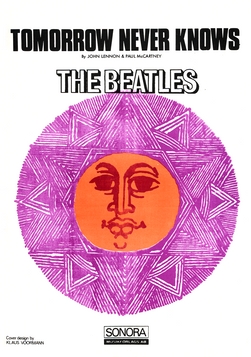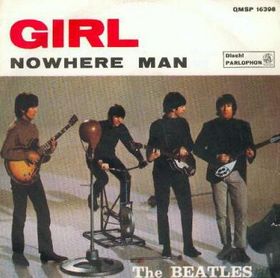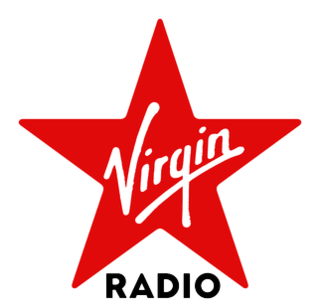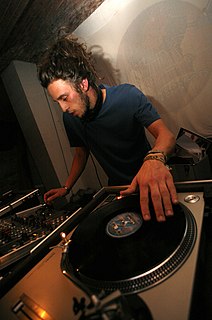
Please Please Me is the debut studio album by the English rock band the Beatles. Parlophone rush-released the album on 22 March 1963 in the United Kingdom to capitalise on the success of the band's singles "Please Please Me" and "Love Me Do". The album topped Record Retailer's LP chart for 30 weeks, an unprecedented achievement for a pop album at that time.
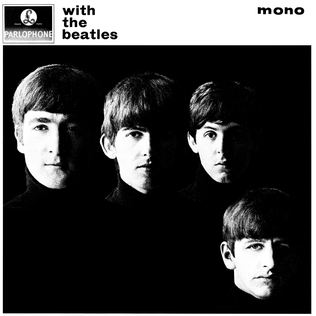
With the Beatles is the second studio album by the English rock band the Beatles. It was released on 22 November 1963, on Parlophone, exactly eight months after the band's debut Please Please Me. The album features eight original compositions and six covers. The cover photograph was taken by the fashion photographer Robert Freeman, and it has been mimicked by several music groups over the years.
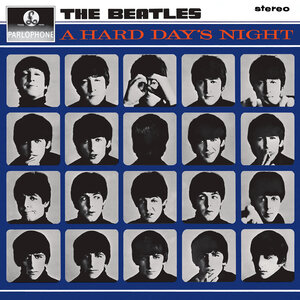
A Hard Day's Night is the third studio album by the English rock band the Beatles, released on 10 July 1964, with side one containing songs from the soundtrack to their film of the same name. The American version of the album was released two weeks earlier, on 26 June 1964 by United Artists Records, with a different track listing. In contrast to their first two albums, all 13 tracks on A Hard Day's Night were written by John Lennon and Paul McCartney showcasing the development of their songwriting talents. The album includes the title track, with its distinct opening chord, and the previously released "Can't Buy Me Love", both transatlantic number-one singles for the band.

Help! is the fifth studio album by English rock band the Beatles and the soundtrack from their film Help!. It was released on 6 August 1965. Produced by George Martin, it was the fifth UK album release by the band, and contains fourteen songs in its original British form. Seven of these, including the singles "Help!" and "Ticket to Ride", appeared in the film and took up the first side of the vinyl album. The second side contained seven other releases including the most-covered song ever written, "Yesterday".

The Beatles, also known as "The White Album", is the ninth studio album by the English rock band the Beatles, released on 22 November 1968. A double album, its plain white sleeve has no graphics or text other than the band's name embossed, which was intended as a direct contrast to the vivid cover artwork of the band's previous LP Sgt. Pepper's Lonely Hearts Club Band. Although no singles were issued from The Beatles in Britain and the United States, the songs "Hey Jude" and "Revolution" originated from the same recording sessions and were issued on a single in August 1968. The album's songs range in style from British blues and ska to pastiches of Chuck Berry and Karlheinz Stockhausen.
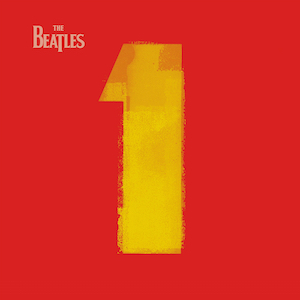
1 is a compilation album by the English rock band the Beatles, originally released on 13 November 2000. The album features virtually every number-one single the band achieved in the United Kingdom and United States from 1962 to 1970. Issued on the 30th anniversary of the band's break-up, it was their first compilation available on only one CD. 1 was a commercial success and topped the charts worldwide. It has sold over 31 million copies.

In their native United Kingdom, between 1962 and 1970, the Beatles released 12 studio albums, 13 extended plays (EPs) and 22 singles. However, the band's international discography is complicated, due to different versions of their albums sometimes being released in other countries, particularly during their early years on Capitol Records in North America. The Beatles' discography was originally released on the vinyl format, with full-length long plays (LPs), shorter EPs and singles. Over the years, the collection has also been released on cassette, 8-track, compact disc (CD), and on a USB flash drive in MP3 and 24-bit FLAC format. Although their output has come to include vault items and remixed mash-ups, the Beatles' "core catalogue", recorded between 1962 to 1970, comprises 213 songs, totalling approximately 10 hours of music. Additionally, they released five tracks that are different versions of previously released songs: "Love Me Do", "Revolution", "Get Back", "Across the Universe" and "Let It Be"; two tracks in German: "Komm, Gib Mir Deine Hand" and "Sie Liebt Dich"; and two tracks that are duplicates of songs included on previous albums but also included on the album Yellow Submarine: "Yellow Submarine" and "All You Need Is Love".
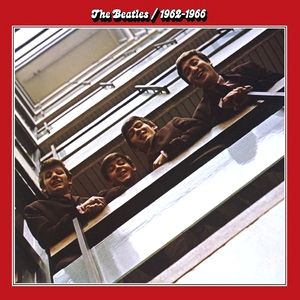
1962–1966 is a compilation album by the English rock band the Beatles, spanning the years indicated in the title. Released with its counterpart 1967–1970 in 1973, it reached No. 3 in the United Kingdom and No. 1 in the United States Cash Box album chart. However, in Billboard, 1962–1966 peaked at No. 3, while 1967–1970 reached the top spot. The album was re-released in September 1993 on compact disc, charting at No. 3 in the UK.

Anthology 1 is a compilation album by the Beatles, released on 20 November 1995 by Apple Records as part of The Beatles Anthology series. It features rarities, outtakes and live performances from the period 1958–1964, including songs with original bass player Stuart Sutcliffe and drummer Pete Best. It is the first in a trilogy of albums with Anthology 2 and Anthology 3, all of which tie in with the televised special The Beatles Anthology. It contains "Free as a Bird", billed as the first new Beatles song in 25 years. The album topped the Billboard 200 album chart and was certified 8x Platinum by the RIAA.
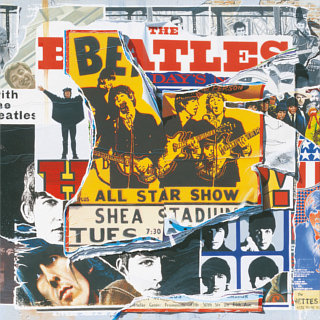
Anthology 2 is a compilation album by the Beatles, released on 18 March 1996 by Apple Records as part of The Beatles Anthology series. It features rarities, outtakes and live performances from the 1965 sessions for Help! to the sessions just prior to their trip to India in February 1968. It is the second in a trilogy of albums with Anthology 1 and Anthology 3, all of which tie in with the televised special The Beatles Anthology. The opening track is "Real Love", the second of the two recordings that reunited the Beatles for the first time since the band's break-up. Like its predecessor, the album topped the Billboard 200 album chart and has been certified 4× Platinum by the RIAA.

Anthology 3 is a compilation album by the Beatles, released on 29 October 1996 by Apple Records as part of The Beatles Anthology series. The album includes rarities and alternative tracks from the final three years of the band's career, ranging from the initial sessions for The Beatles to the last sessions for Let It Be and Abbey Road in 1969 and early 1970. It is the last in a trilogy of albums with Anthology 1 and Anthology 2, all of which tie in with the televised special The Beatles Anthology.

Love is a 2006 theatrical production by Cirque du Soleil which combines the re-produced and re-imagined music of the Beatles with an interpretive, circus-based artistic and athletic stage performance. The show plays at a specially built theatre at the Mirage in Las Vegas.

Yellow Submarine Songtrack is a compilation/soundtrack album by the Beatles for the 1999 re-release of the 1968 film Yellow Submarine. The film was re-released on 13 September 1999 in the United Kingdom and the following day in the United States. In sharp contrast with other Beatles remasters available, the songs were fully remixed by Peter Cobbin at Abbey Road from the original multitrack tapes, something not done for the original CD release of the Beatles catalogue in the late 1980s, nor the 2009 remastered albums.
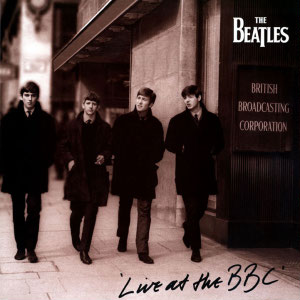
Live at the BBC is a 1994 compilation album featuring performances by the Beatles that were originally broadcast on various BBC Light Programme radio shows from 1963 to 1965. The mono album, available in multiple formats but most commonly as a two-CD set, consists of 56 songs and 13 tracks of dialogue; 30 of the songs had never been issued previously by the Beatles. It was the first official release by the Beatles of previously unreleased performances since The Beatles at the Hollywood Bowl in 1977 and the first containing previously unreleased songs since their final studio album, Let It Be, in 1970.
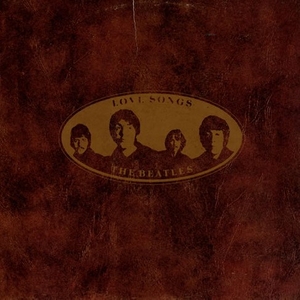
Love Songs is a compilation album that comprises love songs recorded by the Beatles between 1962 and 1970. It was released by Capitol Records in the United States on 21 October 1977 and on Parlophone in the United Kingdom on 19 November 1977. The compilation peaked at #24 in Billboard's Top LPs & Tape chart during a 31-week stay that began on 12 November 1977. The RIAA certified the album with sales of three million units in 2000 even though the compilation was deleted in the late 1980s. The New Zealand release followed the US release with cat. no. and pressing plates, and was released on 2 different EMI labels.
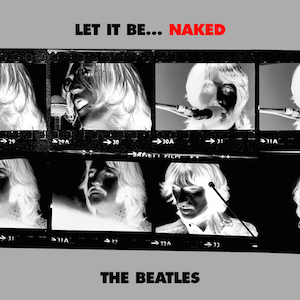
Let It Be... Naked is an alternative mix of the Beatles' 1970 album Let It Be, released in 2003. The project was initiated by Paul McCartney, who felt that the original album's producer, Phil Spector, did not capture the group's stripped-down, back-to-their-roots intentions for the album. Naked consists largely of newly mixed versions of the Let It Be tracks while omitting most of Spector's embellishments and the incidental studio chatter featured between many of the songs on the original album. Naked also omits two tracks from the 1970 release – "Dig It" and "Maggie Mae" – replacing them with "Don't Let Me Down", which was the non-album B-side of the "Get Back" single.

Past Masters is a two-disc compilation album set by the English rock band the Beatles, released on 7 March 1988 as part of the first issue of the band's entire catalogue on compact disc. Compiled by noted Beatles historian Mark Lewisohn, this collection of many of the band's biggest hits, as well as rarities, includes every song released commercially by the band that was not available on the Beatles' 12 original UK albums or the Magical Mystery Tour LP.
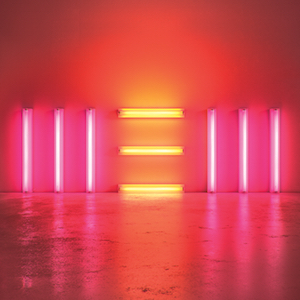
New is the sixteenth solo studio album by Paul McCartney released on 14 October 2013 in the United Kingdom and the following day in the United States. The album was his first since 2007's Memory Almost Full to consist entirely of new compositions.

On Air – Live at the BBC Volume 2 is a 2013 live/compilation album featuring 40 previously unreleased tracks from the Beatles' 1963–1964 BBC Radio broadcasts. It was released on 11 November 2013, along with a remastered and repackaged Live at the BBC Volume 1, which was originally released in 1994. The album is available as a two-CD set and a three-LP set. An exclusive limited edition lithographic print is also available from the Beatles online store.

All the Best! is the second official compilation album of Paul McCartney's music, after 1978's Wings Greatest. It was released in 1987 on Capitol Records and Parlophone Records.







